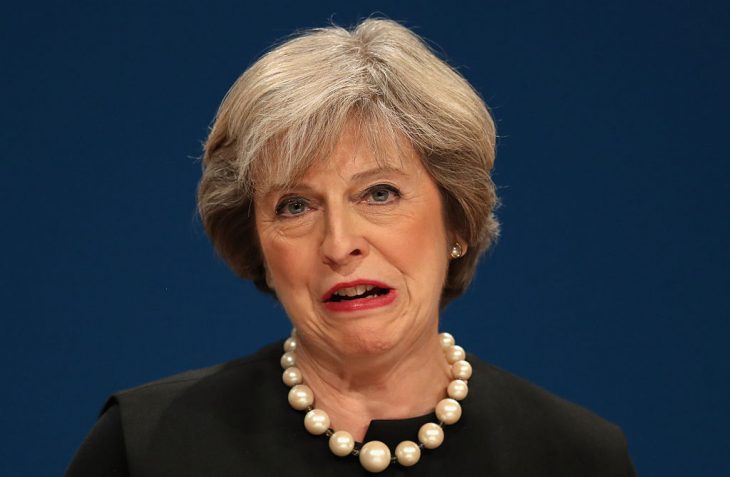MPs are now debating the government’s European Union (notification of withdrawal) Bill, with a warning from Theresa May and Brexit Secretary David Davis that to try to block the legislation would be to thwart the will of the British people. The Prime Minister said last night that ‘I hope when people look at the Article 50 bill they will recognise that it is a very simple decision – do they support the will of the British people or not’, while Davis will ask MPs whether they ‘trust the people or not’ as he opens the Second Reading stage of the Bill.
There is a funny symmetry here between the bill that enabled the referendum in the first place, and this legislation which starts to enact the result of that referendum. David Cameron did not want a referendum, and then when he decided that he really did have to hold one, he stalled on introducing the bill. He then did so through the Private Members’ Bill system, and the Tory machine went into overdrive, accusing Labour and anyone who didn’t want a referendum of not respecting voters. The Article 50 Bill being debated today and voted on tomorrow was one the government did not want to introduce, and that government is led by someone who did not want a Brexit. Again, the political messages today involve warnings to Labour and other opponents of a ‘Hard Brexit’ that they would be disrespecting the will of the people to try to block the bill.
Second readings of bills are supposed to include debate on the broad principles of the legislation and an opportunity for both the Opposition frontbench and all interested backbenchers to raise concerns about certain details which they plan to examine further at Report or Committee Stage. For an Opposition to vote against a Bill at Second Reading is to declare that the principles rather than the details are all wrong – and Jeremy Corbyn has quite rightly decided that his MPs would indeed be disrespecting the will of the British people by blocking the bill at this very early stage. Most of those who plan to vote against or back wrecking amendments to the second reading are from seats that voted ‘Remain’, and are worried that they should show their constituents that they are standing up for their views. Other MPs who are voting with the Labour whip are doing so with heavy hearts, believing that to do anything else would indeed incur the wrath of constituents who they already feel out of step with.
Those heavy-hearted Labourites have yet to see what the impact of campaigning for ‘Remain’ last June will have on their ability to hang onto their seats. More immediately, the party has the problem of whips trying to corral MPs through a voting lobby that they themselves don’t plan to walk through – so far three have indicated that they will vote against the Second Reading – and a leader who may have made the right decision on how his party should vote, but who lacks the authority as a serial rebel himself to enforce it.
Given this is just the first substantive stage of the Bill, and given MPs tend to save rebellions for Report Stage in the Commons, the debate today and tomorrow is likely to be the tamest part of this legislation’s passage through the Commons.







Comments